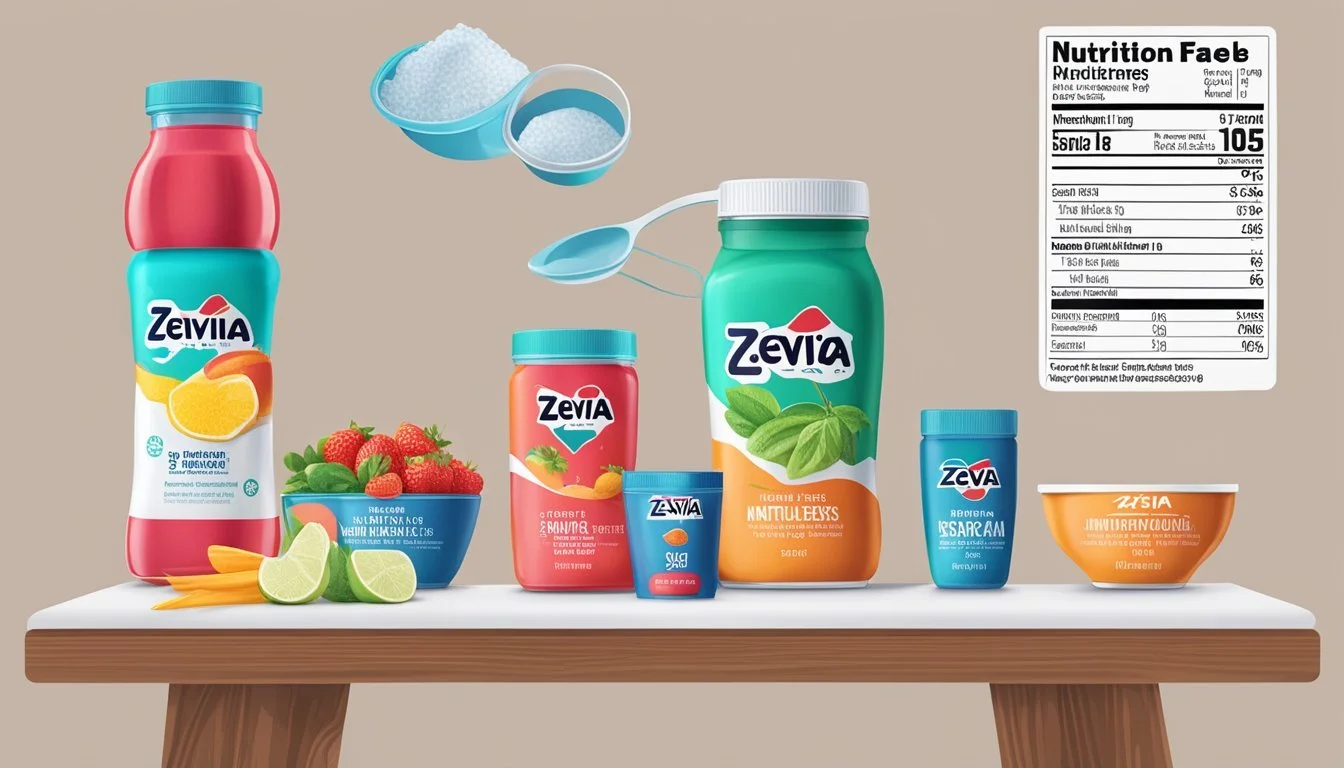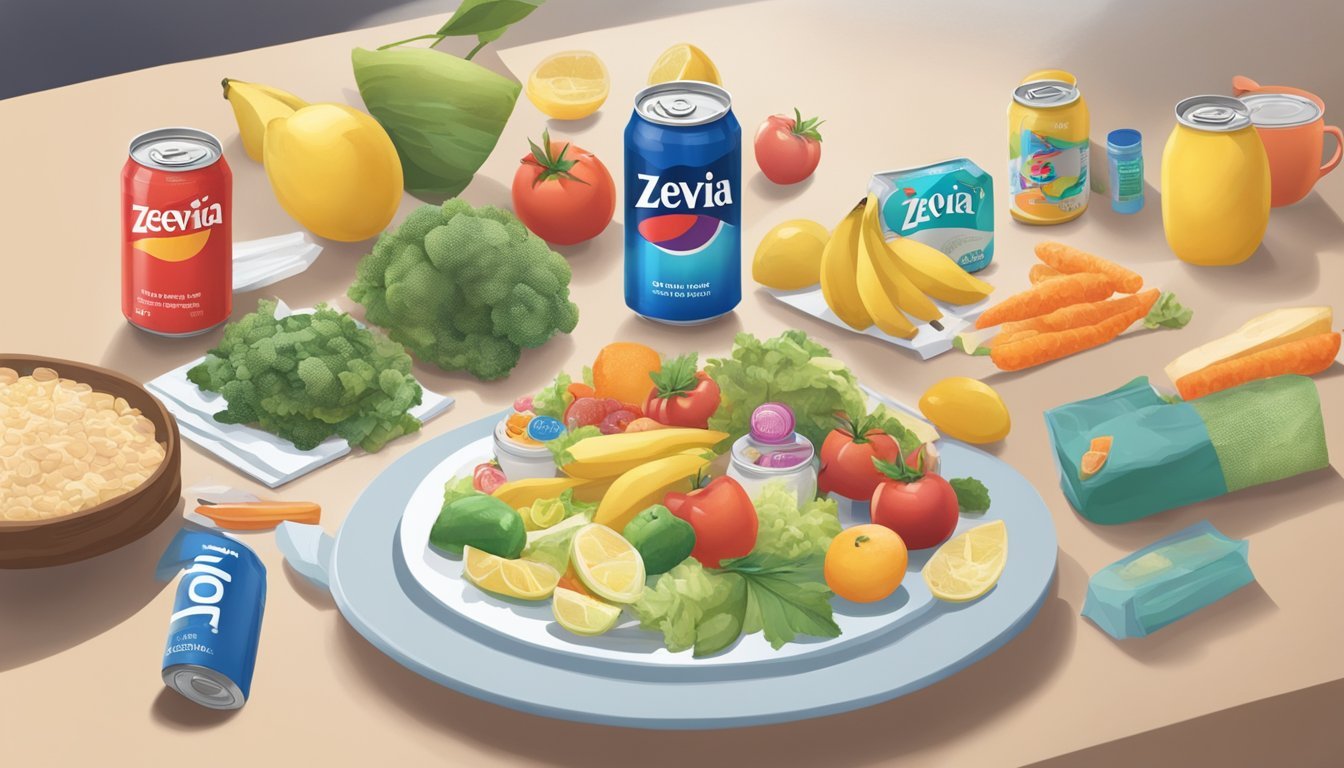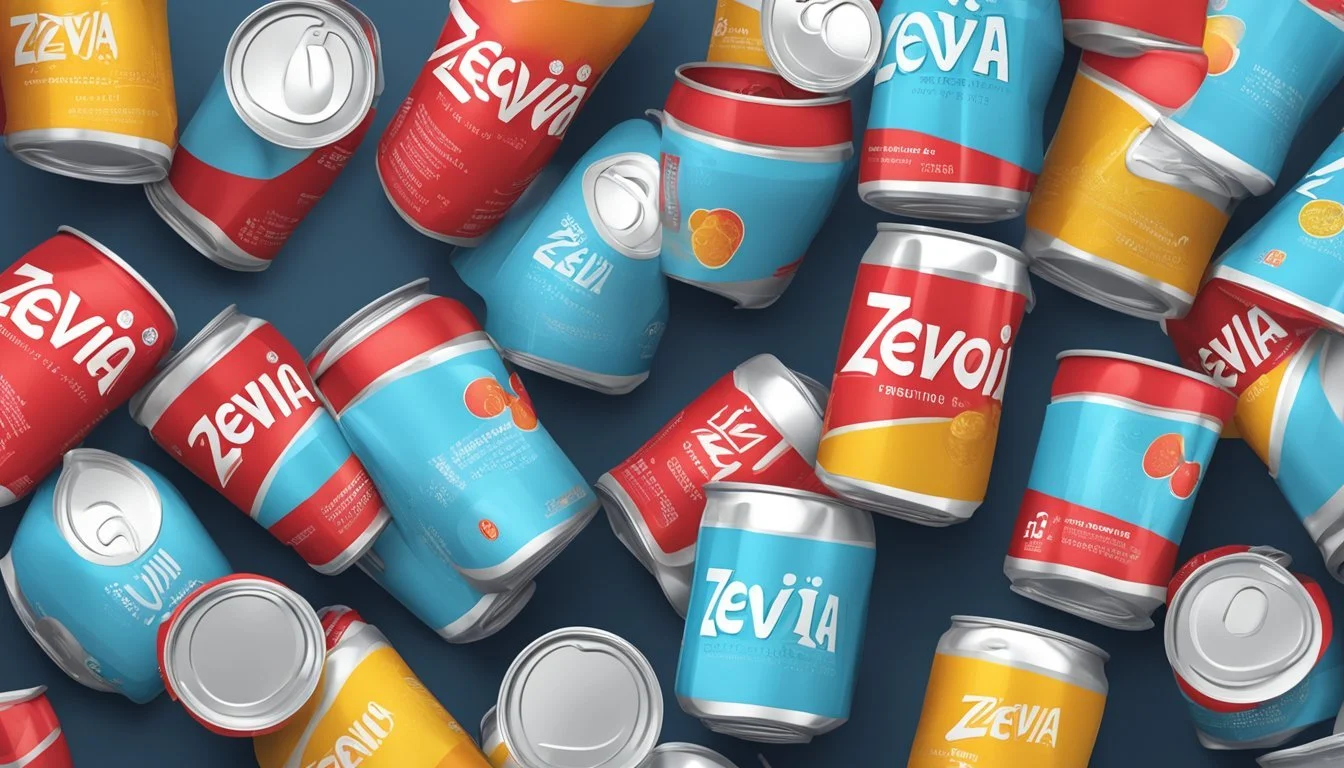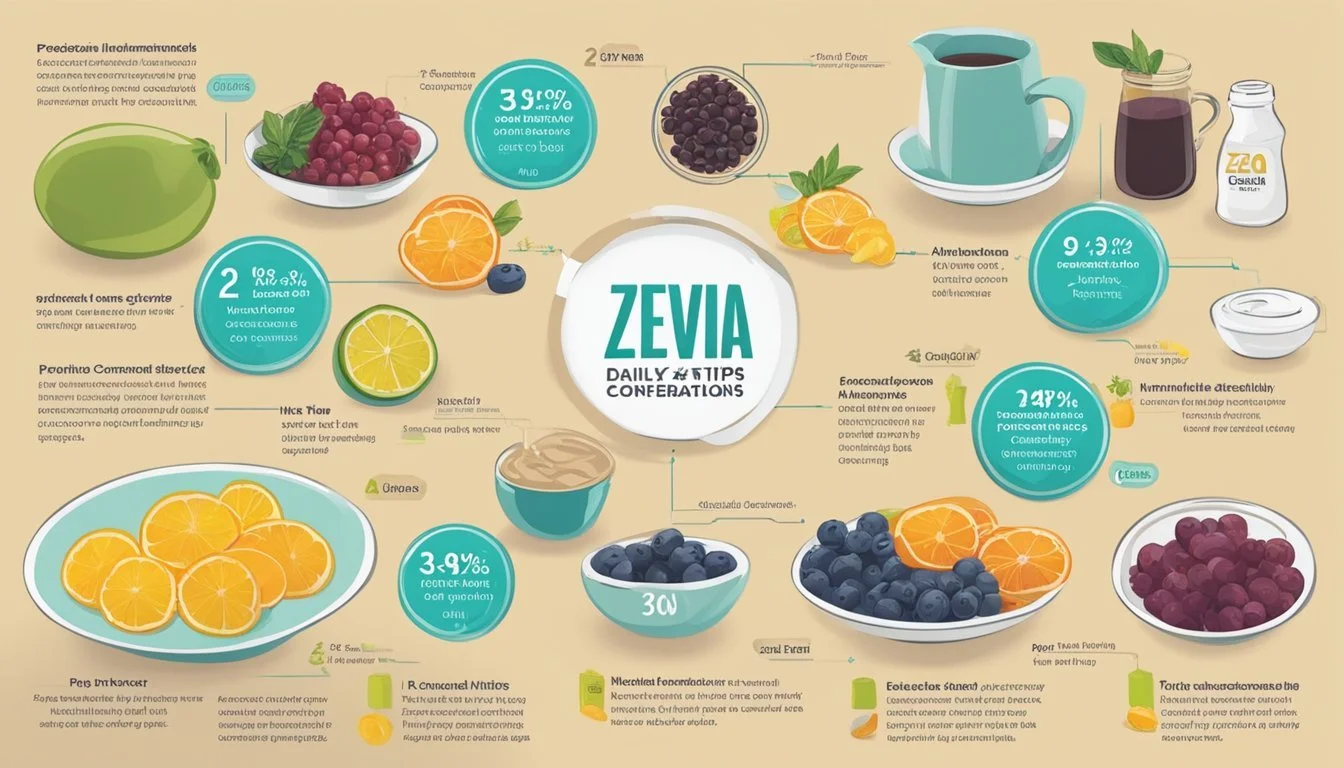How Many Servings of Zevia Is Too Much
Understanding Safe Consumption
When it comes to enjoying Zevia, a popular zero-calorie soda alternative, moderation is key. Made with natural sweeteners like stevia, Zevia offers a healthier option for those looking to reduce their sugar intake.
However, consuming more than one to two servings per day may lead to potential issues. Although Zevia is calorie-free and lacks harmful sugars, it still contains caffeine in certain varieties, which can cause problems if consumed in large quantities.
Moreover, while stevia is generally considered safe, some people may experience digestive discomfort if consumed in excess. By moderating their Zevia intake and being mindful of their overall diet, individuals can enjoy this soda alternative without compromising their health.
Understanding Zevia and Stevia
Zevia is a zero-calorie beverage sweetened with stevia, a natural sweetener derived from the Stevia rebaudiana plant. These subsections explore the origins and properties of stevia and the characteristics of Zevia.
Origins and Nature of Stevia
Stevia is a natural sweetener extracted from the leaves of the Stevia rebaudiana plant, native to South America. Indigenous peoples in Paraguay and Brazil have used stevia for centuries.
The active compounds in stevia are known as steviol glycosides, which are responsible for its sweet taste. These glycosides are up to 300 times sweeter than sugar, allowing smaller quantities to achieve the desired sweetness.
Research highlights the health benefits of stevia, including its antibacterial, anti-inflammatory, and hypotensive properties. Additionally, stevia has minimal impact on blood sugar levels, making it suitable for managing diabetes and weight.
Zevia: The Zero-Calorie Beverage
Zevia offers a range of zero-calorie soft drinks and is sweetened with stevia leaf extract. The key ingredients in Zevia are carbonated water, stevia leaf extract, and natural flavors. These ingredients combine to create a healthier alternative to sugar-laden sodas.
Stevia in Zevia provides a sweet taste without the additional calories and sugar, catering to health-conscious consumers. The carbonation adds the familiar fizzy sensation enjoyed in traditional sodas.
Given its natural sweetening properties and lack of calories, Zevia is favored by those looking to reduce sugar intake while still enjoying flavorful beverages. The absence of artificial ingredients further enhances its appeal as a healthier option.
Health Considerations of Sweeteners
Zevia uses sweeteners like stevia instead of sugar. Understanding the health impacts of these sweeteners is crucial when determining safe consumption levels.
Comparing Sweeteners
Sweeteners can be broadly categorized into natural and artificial types. Natural sweeteners include stevia and monk fruit, while artificial ones include aspartame and sucralose.
Stevia is a natural sweetener derived from the Stevia rebaudiana plant, known for its minimal impact on blood sugar levels, making it a popular option among people with diabetes. On the other hand, artificial sweeteners can sometimes affect gut bacteria and may lead to other health concerns.
Stevia, in particular, stands out due to its anti-inflammatory properties and fewer gastric effects compared to some artificial sweeteners. Yet, it is essential to understand its benefits and risks comprehensively.
Potential Benefits of Stevia
Stevia is calorie-free and doesn't raise blood sugar, which is beneficial for those managing diabetes and seeking weight loss. Additionally, it might help lower blood pressure due to its vasodilatory effects.
In terms of safety, stevia has been recognized by the U.S. Food and Drug Administration (FDA) as generally recognized as safe (GRAS). Its natural origin and lack of calories make it a suitable alternative for people with specific health conditions like obesity and diabetes.
Furthermore, stevia has shown potential anti-inflammatory properties, offering additional health benefits beyond weight management and blood sugar control.
The Side Effects and Risks
Despite the benefits, stevia and other sweeteners might have some side effects. For example, excessive consumption can lead to gastric effects such as bloating and diarrhea.
There's also mixed research on the long-term health impacts of sweeteners like stevia. Some studies suggest that overuse may negatively impact liver function and disrupt gut bacteria balance.
Moreover, children and pregnant women are often advised to consume such sweeteners in moderation due to the lack of comprehensive studies on long-term safety for these groups. It's essential to balance usage with traditional sugars to avoid potential risks associated with overconsumption.
Careful consideration of the type and amount of sweeteners can help mitigate these risks and optimize health benefits.
Regulatory Status and Research
The regulatory status of Zevia focuses on the review of stevia's safety by various health organizations. Understanding the acceptable daily intake and relevant research can guide consumers on safe consumption levels.
FDA Reviews and GRAS Status
The Food and Drug Administration (FDA) has evaluated stevia's main components, known as steviol glycosides. The FDA has granted these components GRAS (Generally Recognized As Safe) status.
This assessment is applied when the substance is deemed safe for consumption under the intended usage conditions.
As part of regulatory compliance, Zevia's manufacturers adhered to these safety guidelines, ensuring their products align with the FDA's standards.
World Health Organization Recommendations
The World Health Organization (WHO) has also reviewed steviol glycosides. They have established an acceptable daily intake (ADI) for these compounds at 4 mg per kilogram of body weight.
This recommendation helps in determining the safe consumption limits for individuals based on their weight.
Moreover, these guidelines provide an international standard, ensuring that products containing stevia, like Zevia, can be safely enjoyed by a broad audience.
Current Research on Stevia
Recent research emphasizes the safety of steviol glycosides. Studies have explored their metabolic effects, indicating they do not affect blood glucose levels, making them suitable for diabetic consumption.
However, some research points to mixed outcomes regarding the gut microbiota. It is essential for ongoing research to further clarify these effects.
Despite varying findings, moderation remains key. Consumers are advised to monitor their intake, guided by available research and regulatory limits, to ensure they stay within safe consumption parameters.
Daily Intake Recommendations
Specific guidelines for Zevia consumption vary based on factors like body weight and age.
Acceptable Daily Intake Levels
The World Health Organization (WHO) recommends an acceptable daily intake (ADI) for steviol glycosides, the sweeteners in Zevia, of up to 4 mg per kilogram of body weight per day. This translates to about 10 packets of stevia for an average 150-pound adult.
Stevia is intensely sweet, so even small amounts can suffice for most. Dietitians advise that consuming Zevia within these limits is generally safe, but caution should be taken to avoid excessive intake to prevent potential digestive issues.
Dietary Guidelines for Various Demographics
Different groups may need tailored advice:
Children: Children should consume less due to their lower body weight, around 2-3 cans of Zevia for an average child.
Pregnant Women: Pregnant women should consult healthcare providers for personalized guidance, as moderate consumption is typically safe.
Diabetics: Zevia can be a better alternative to sugary sodas due to zero sugar content, but moderation remains key.
Individuals with Obesity: Zevia can be a calorie-free option to aid in weight management, but overall diet should be balanced.
Each demographic should consider their specific health needs and consult healthcare professionals to determine safe consumption levels.
Practical Usage of Stevia
Stevia is a versatile, natural sweetener that can be incorporated into various aspects of daily life. It serves as an effective sugar substitute in beverages, cooking, and baking, and is available in multiple forms to suit different needs.
Incorporation in Diet and Beverages
Stevia can be used to sweeten a variety of beverages, including tea, coffee, and even homemade soft drinks like Zevia. Unlike table sugar, stevia is both calorie-free and sugar-free, making it a popular alternative for those looking to reduce their sugar intake. Stevia-based products such as Truvia and Stevia in the Raw offer convenient options for sweetening drinks without added calories.
For people who enjoy flavored beverages, stevia can be added to teas and coffees to create a pleasant, sweet taste without the drawbacks of added sugar. Additionally, it mixes well with other natural flavors, enabling customization of drinks to personal preferences.
Cooking and Baking with Stevia
In recipes, stevia can replace table sugar effectively. It's crucial to understand that stevia is much sweeter than sugar, so only a small amount is needed. This characteristic makes it an appealing option for baking and cooking where calorie reduction is desired.
There are various forms of stevia available, such as liquid extracts, powdered forms, and granulated versions, each suitable for different culinary applications. When baking, it is recommended to follow specific recipes that call for stevia, as the sweetness and moisture content differ from that of sugar.
Stevia is heat-stable, meaning it retains its sweetness when subjected to high temperatures, making it a reliable alternative to sugar in baked goods and cooked dishes. Its flexibility allows it to be used in a multitude of recipes, ranging from desserts to savory dishes.
Product Availability and Options
Stevia comes in several varieties, including pure stevia extract, blended with other sweeteners, or combined with bulking agents. Popular brands include Truvia, Stevia in the Raw, and sweetened beverages like Zevia. Each product may have a slightly different taste profile, so trying a few options can help determine the best fit for individual preferences.
These products are widely available in grocery stores, health food stores, and online retailers. Options range from small packets for portable use to larger containers for home cooking. The diverse availability ensures that users can easily find a solution that fits their dietary and culinary needs.
Consumers can also find stevia in various forms across different brands, tailored for specific uses such as baking blends, liquid drops for beverages, and granules for everyday sweetening. This versatility ensures stevia can be seamlessly integrated into everyday life.
Factors Influencing Stevia's Impact on Health
Stevia, a natural sweetener, can have various health effects depending on body weight, blood sugar control, dental health, and antioxidant properties. Long-term effects and ongoing studies also play critical roles in determining its overall impact.
Body Weight and Blood Sugar Control
Stevia is a zero-calorie sweetener, making it an excellent alternative for reducing sugar intake. Research indicates that substituting stevia for sugar may help prevent conditions like diabetes and obesity. For individuals monitoring their blood sugar levels, stevia offers a favorable solution since it doesn't cause a spike in blood glucose.
Studies have shown that non-nutritive sweeteners, including stevia, assist in managing body weight. They do this by reducing overall caloric intake when used to replace high-calorie sugars. Individuals aiming to maintain or lose weight might find stevia to be a beneficial part of their dietary plan.
Dental Health and Antioxidant Properties
Stevia shows promise in promoting dental health. Unlike sugar, it doesn't contribute to tooth decay and cavities. This makes it a dentist-approved option for those looking to reduce their sugar intake without sacrificing sweetness.
In addition to its dental benefits, stevia contains antioxidants, which are compounds that help neutralize harmful free radicals. By incorporating stevia into their diets, individuals may benefit from its potential to reduce oxidative stress. This could contribute to overall improved health.
Long-Term Effects and Ongoing Studies
The long-term effects of consuming stevia are still under rigorous investigation. While many short-term studies show positive outcomes, there remains a need for more extended research to understand its full implications. Some studies suggest minimal adverse effects, while others call for more comprehensive evaluations.
Ongoing research focuses on areas like gut health and metabolic impacts. It's crucial to stay updated with scientific findings to comprehend stevia's long-term health consequences better. Being aware of current studies will help individuals make informed choices about their sweetener options.
Consumer Tips and Considerations
When consuming Zevia, there are specific considerations that can help ensure it fits well into a balanced diet and lifestyle. Key points include carefully reading labels and making informed dietary choices.
Reading Labels and Understanding Terms
Before purchasing any Zevia product, it’s crucial to read the labels thoroughly. Zevia uses stevia, a natural sweetener, and avoids ingredients like aspartame and sucralose found in many other diet sodas.
Consumers should check for any additional ingredients that might impact their health or dietary restrictions. Zevia is free from artificial colors, flavors, and sugar alcohols, which makes it appealing to those looking for a more natural soda option.
Understanding terms on labels, such as non-GMO and zero-calorie, can help consumers make informed decisions. Consulting with a nutritionist or registered dietitian can provide additional personalized guidance.
Balanced Diet and Lifestyle Choices
Incorporating Zevia into a balanced diet involves moderation. Although Zevia is a healthier alternative to traditional sodas, drinking it excessively may still lead to overconsumption of sweetened beverages.
Maintaining a balanced diet requires variety. Alongside Zevia, consumers should include whole foods like fruits, vegetables, lean proteins, and whole grains. Exercise and hydration with plain water are also crucial for overall wellness.
Consumers should consider their lifestyle choices and how Zevia fits into their daily routines. While Zevia can be part of a healthy diet, it is not a substitute for nutritious whole foods. Consulting with registered dietitians can offer insights tailored to individual health needs.









